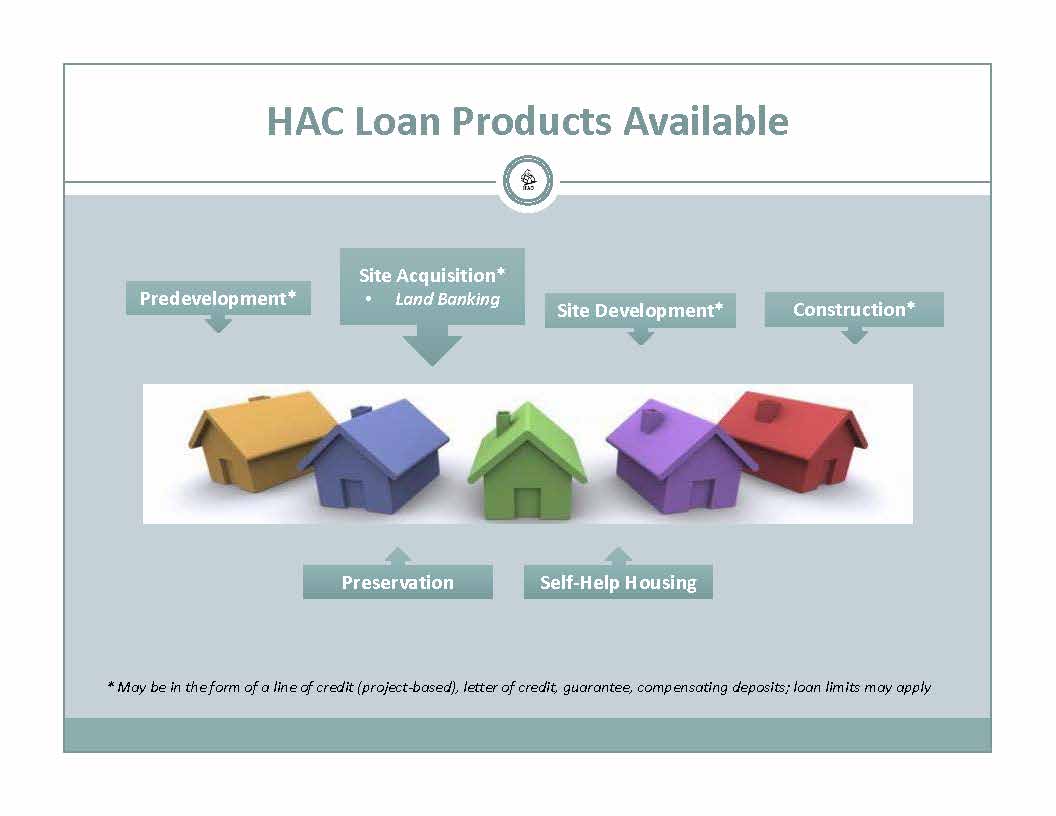HAC News: September 17, 2014
HAC News Formats. pdf
September 17, 2014
Vol. 43, No. 19
• Sept. 15-Oct. 15 is National Hispanic Heritage Month • Congress to pass continuing resolution for early FY15 • Vilsack responds to congressional letter about 502 spending • Senate committee advances Mensah nomination • Rural poverty decreases, yet remains higher than U.S. poverty • HUD offers economic development funds for Appalachia and the Mississippi Delta • USDA posts amended maps showing future area eligibility • Regulators seek comments on proposed revisions to CRA questions and answers • HUD revises model standards for manufactured home ground anchoring • GAO report says HUD can do more on manufactured housing • Broad access to mortgage financing recommended to help reduce income inequality • Farmworker housing and health conference set for November • Webinar to cover protecting seniors and other RD tenants from displacement • Please nominate national or local rural housing leaders for HAC awards!
September 17, 2014
Vol. 43, No. 19
SEPT. 15-OCT. 15 IS NATIONAL HISPANIC HERITAGE MONTH. President Obama’s proclamation includes a call for comprehensive immigration reform.
CONGRESS TO PASS CONTINUING RESOLUTION FOR EARLY FY15. The House is expected to pass a CR on September 17 and the Senate soon after that. It will fund the federal government at FY14 levels until December 11. In a post-November-elections session Congress will have to complete work on FY 2015 appropriations or pass another CR.
VILSACK RESPONDS TO CONGRESSIONAL LETTER ABOUT 502 SPENDING. Responding to concerns about USDA’s ability to use all available Section 502 direct funds before FY14 ends September 30 (see HAC News, 8/6/14), USDA Secretary Tom Vilsack wrote to House and Senate Agriculture Appropriations Subcommittee leaders explaining steps being taken this year (see HAC News, 7/23/14) and planned for next year.
SENATE COMMITTEE ADVANCES MENSAH NOMINATION. The Senate Agriculture Committee held a hearing September 10 on the selection of Lisa Mensah as USDA Under Secretary for Rural Development (see HAC News, 5/14/14). A confirmation vote by the full Senate has not yet been scheduled.
RURAL POVERTY DECREASES, YET REMAINS HIGHER THAN U.S. POVERTY. The number of rural Americans living in poverty decreased last year, according to a new Census Bureau report. Overall, the official U.S. poverty rate was 14.5% in 2013, a decline from 15% in 2012. Income and Poverty in the United States: 2013 says there was no statistically significant change in either the number of people living in poverty or real median household income. State and local data will be released September 18. A HAC Rural Research Note provides more details.
HUD OFFERS ECONOMIC DEVELOPMENT FUNDS FOR APPALACHIA AND THE MISSISSIPPI DELTA. Both programs aim to increase access to capital for business lending and economic development, and applications are due November 3. For Appalachia, the only eligible applicants are state community and economic development agencies. For Delta funds, nonprofits and tribal governments are eligible. Contact Thann Young or Monica Wallace, HUD, 877-787-2526.
USDA POSTS AMENDED MAPS SHOWING FUTURE AREA ELIGIBILITY. Maps now available on RD’s website (under the Future Eligible Areas heading) eliminate “rural in character” changes (see HAC News, 9/3/14). A disclaimer indicates slight alterations may be made before the maps take effect on October 1.
REGULATORS SEEK COMMENTS ON PROPOSED REVISIONS TO CRA QUESTIONS AND ANSWERS. The Interagency Questions and Answers Regarding Community Reinvestment, revised periodically, supplement the Community Reinvestment Act regulations issued by the Federal Reserve board, the FDIC, and the Office of the Comptroller of the Currency. Comments are due November 10. Contact Bobbie Kennedy, OCC, 202-649-5470.
HUD REVISES MODEL STANDARDS FOR MANUFACTURED HOME GROUND ANCHORING. A final rule amends the Manufactured Home Model Installation Standards, establishing a uniform test method to determine and rate ground anchor performance in different soil classifications. Contact Pamela Beck Danner, HUD, 202-708-6423.
GAO REPORT SAYS HUD CAN DO MORE ON MANUFACTURED HOUSING. Manufactured Housing: Efforts Needed to Enhance Program Effectiveness and Ensure Funding Stability (GAO-14-410) recommendations related to the HUD Code updates, FHA insurance, and fees. Contact Matthew Scirè, GAO, 202-512-8678.
BROAD ACCESS TO MORTGAGE FINANCING RECOMMENDED TO HELP REDUCE INCOME INEQUALITY. Continued government provision of affordable housing and financing is among the recommendations of Responding to Rising Inequality: Policy Interventions to Ensure Opportunity for All, a brief published by the Haas Institute for a Fair and Inclusive Society at the University of California at Berkeley.
FARMWORKER HOUSING AND HEALTH CONFERENCE SET FOR NOVEMBER. “Farmworker Housing Quality and Health: A Transdisciplinary Conference” will be held November 11 in Arlington, VA. Registration is $50 until October 1.
WEBINAR TO COVER PROTECTING SENIORS AND OTHER RD TENANTS FROM DISPLACEMENT. The National Housing Law Project will offer a free webinar on October 21 at 2:00 pm Eastern time/11:00 am Pacific on “Prepayments, Maturing Mortgages, and Foreclosures: Protecting Seniors and Others from Rural Development Rental Housing Displacement.”
|
PLEASE NOMINATE NATIONAL OR LOCAL RURAL HOUSING LEADERS FOR HAC AWARDS! Nominations are due September 30 for the Cochran/Collings Award for national rural housing service and the Skip Jason Community Service Award. The honors will be presented at the National Rural Housing Conference in December. Complete the online nomination form. Questions? Contact Lilla Sutton, HAC, 202-842-8600. |



